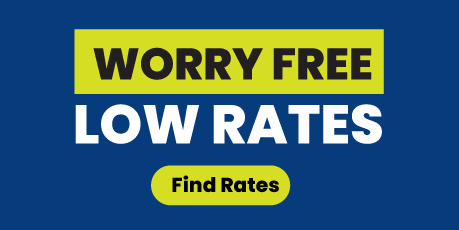Prequalification Vs. Mortgage Preapprovals: Which is better?


Are you considering buying a home? Then it is important to understand the difference between a pre-qualification and a mortgage pre-approval.
When buying a home, it is important to know how much home you can afford to purchase and what you qualify for to obtain a mortgage loan and purchase your home.
The prequalification and the online mortgage pre-approval will provide the homebuyer with important information like the total monthly mortgage payment, interest rate, down payment and closing cost.
In this article, answer the question of how most homebuyers will most likely use both the pre-qualification and the mortgage pre-approval to purchase a home.
Mortgage Prequalification: First step to buying a home
By obtaining prequalification from a mortgage lender, you can confidently estimate the amount of house that fits your financial capabilities.
This allows you to create an accurate budget and plan for home buying, so that when it is time to close on your dream home, you have already narrowed down what makes sense in terms of price tag.
Prequalification provides assurance that the loan will be approved - ensuring all parties involved are confident with their investment into a future together!
When you opt for prequalification, the process usually involves providing self-reported information like gross monthly income, and verification of down payment funds to purchase a home, compared to checking the applicants credit score and reviewing their income and asset documents.
With prequalification for a mortgage, you'll be provided with an idea of what to expect rather than hard figures.
For more assurance, however, it's wise to pursue preapproval since the lender will then examine your credit score and review bank statements as well as other income documents before confirming eligibility.
Homebuyers can use both the pre-qualification, then the mortgage pre-approval process sequentially.
In some cases, a home-buyer may elect to advance directly to the mortgage pre-approval process by providing all the required income and asset documents upfront.
Mortgage Pre-Approval: Second step to buying a home
A mortgage pre-approval offer all parties a more reliable commitment from the mortgage lender that they will issue the mortgage loan so the homebuyer can purchase the home.
Mortgage pre-approvals accuracy will exceed the mortgage pre-qualification process because the mortgage lender will review all income and asset documents that will be required for final loan approval.
These mortgage pre-approvals will minimize the homebuyer and home seller from any last minute decisions to determine the homebuyer is not eligible for financing.
In addition, the home-buyer will have a more reliable loan estimate of closing cost, interest rates and monthly payments.
Prequalification Letters; Third step to buy home
To ensure that real estate agents and sellers recognize your ability to purchase a home, it is important to establish prequalification with a mortgage lender.
After you have been approved for prequalification, you will receive an official letter of proof which can be presented as evidence of this process.
With the issuance of this document, agents and sellers are aware that you are qualified to buy their listing!
Prequalifying for a loan is an essential foundation when considering purchasing a home, however preapproval should be the ultimate goal.
This is because obtaining preapproval requires extra steps such as verifying your information with a lender to prove that you are serious about buying.
Obtaining preapproval from a loan officer can make all the difference in making sure you get exactly what you need and desire out of this process.
To obtain a mortgage pre-approval and mortgage pre-approval letter, you can use our online mortgage pre-approval app to verify loan eligibility and upload your income and asset documents.
Mortgage Preapproval Vs. Prequalification: What To Expect When You Apply
Prequalification and preapproval allow homebuyers to get a better understanding of how much they can afford when purchasing a house, with the latter requiring lenders to assess one's financial information and credit background in more detail.
A preapproval is far more reliable than a prequalification, and shows sellers that your financial information has been carefully scrutinized.
This will also give you the power to present them with an official letter of approval - proof that you can indeed afford the mortgage. Be sure though: double-check with your lender before taking any steps further!
Lenders offer various approval levels to give you an understanding of what your budget allows:
Prequalification
Prequalification requires lenders to first check your credit score and ask you a few questions about your income and assets.
After doing so, they can provide an accurate estimate of what you are able to afford that is more precise than if prequalification didn't include this extra step.
If you are qualified to receive a mortgage, your lender will provide you with an official prequalification letter.
Verified Mortgage Pre-Approval
Once you are prequalified for a mortgage, it's time to take the next step - acquiring a preapproval.
Reach out to an experienced home loan professional and provide paperwork so they can confirm your income and assets.
This crucial process allows for lenders to determine if you meet their requirements before pursuing further discussions about the amount of funding that may be available from them.
A mortgage preapproval is a much more reliable estimate of what you can afford since your lender will be verifying not only your credit history, but also your income and assets.
It gives extra credence to real estate agents and sellers as well because they'll know that the lender has confirmed that you can indeed purchase the home of your dreams.
Upon approval, your lender will provide you with a letter to demonstrate that you can finance the home.
Show this evidence of funding to your real estate agent and sellers as confirmation that securing enough mortgage is no longer an issue.
Keep in mind that prequalification's and preapprovals are just estimations to aid your home search.
Once you make an offer on a property, the final mortgage approval will depend upon the third-party appraisal of the house as well as successful completion of any inspections required.
Should I use a mortgage prequalification or pre-approval?
For those earnestly searching for their dream home, obtaining a preapproved mortgage is the most sensible course of action.
A preapproval enables you to establish an exact budget and helps narrow down your search significantly; plus with it comes knowledge of what kind of interest rate one can expect on a loan, as well as which types of mortgages they qualify for.
Furthermore, having this confidence-boosting confirmation gives buyers leverage when negotiating with sellers - since there won't be any worries about their loan not being approved.
If you're just beginning your search for a new home and are unsure if you want to move forward with the purchase, getting prequalified can be an ideal option!
The mortgage prequalification can be with our without a credit inquiry.
If you're considering buying a house, prequalification's are the perfect tool for formulating budgets and assessing loan options.
They'll provide approximate figures to help ascertain whether or not purchasing property in specific areas is feasible based on your income.
Although prequalification's don't furnish exact details about interest rates or loan amounts that will probably be accepted, they still give valuable insight into the overall process of home-buying.
Summary of prequalification vs. mortgage pre-approvals
A mortgage prequalification is an excellent way to gauge how much house you can afford, while a preapproval goes one step further by verifying the financial information provided for more exact results.
Being approved early on in your home search allows you to be aware of what it takes to purchase the property of your dreams, and will give sellers confidence knowing that you are a qualified buyer.







